Witness the Future of Cities in Jeonju
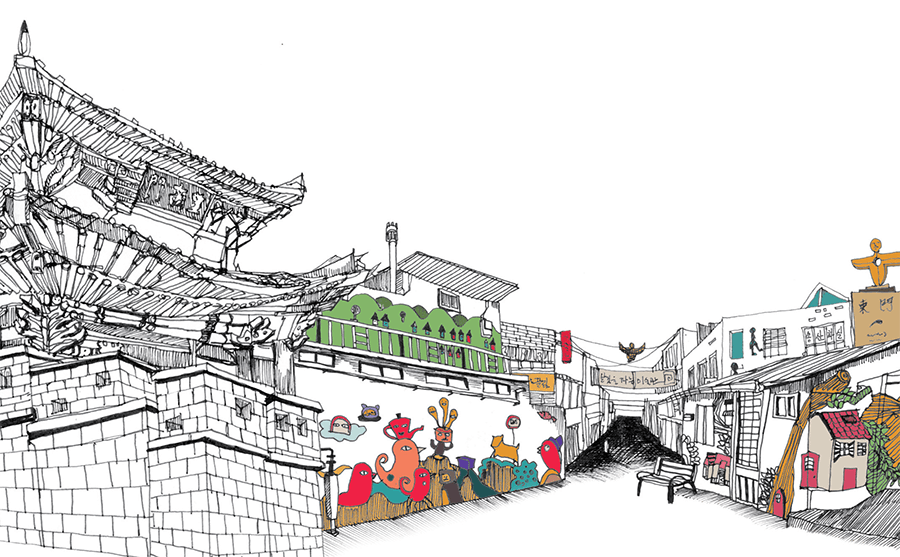
What makes the world-famous cities such as London, Paris, Barcelona, Rome, and others so attractive is their own uniqueness. As a city symbolizing the Korean traditional culture, Jeonju has also been recognized and attracted interest beyond Korea.
From the Jeonju International Film Festival and the recently completed Chutmajung-gil Street to the ‘world’s first’ Drone Soccer League and World Slowness Forum, Jeonju’s uniqueness has been drawing worldwide attention. Today, I will explore what makes this city so attractive.
The Jeonju International Film Festival (JIFF)
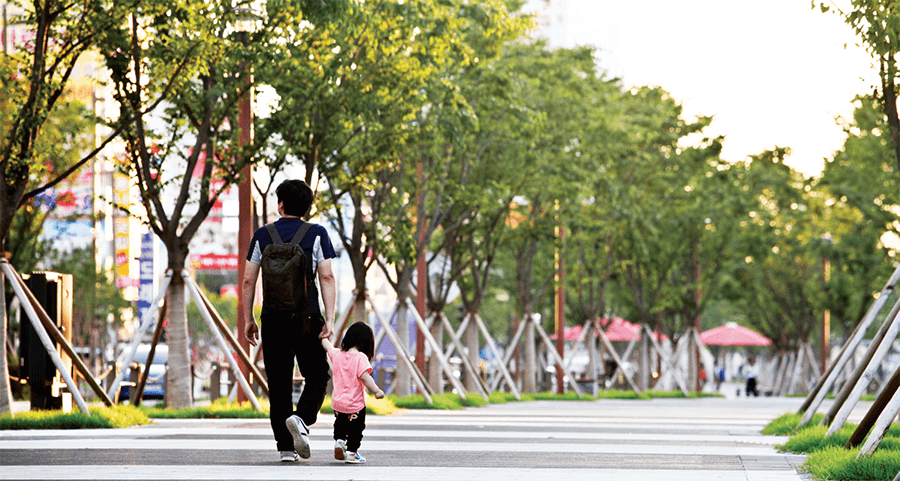
In 2017, the most widely-read independent movie journal in the world, the MovieMaker Magazine has introduced the Jeonju International Film Festival (JIFF) as one of ‘The 25 Coolest Film Festivals in the World.’ The JIFF was the only film festival held in Asia to make it on the list. The magazine’s panels commended the JIFF as ‘unforgettable.’ To quote, although “much lesser known than its bigger Busan brother,” the JIFF’s program is “always interesting, a mix of Asian indies, Korean premieres, experimental films and rarities from all over the world.”
The power and attractiveness of the JIFF comes from the adherence to its convictions and principles. Despite the last South Korean administration’s ‘cultural blacklist’ scandal, the JIFF refused to yield its principle of being the beacon of the freedom of expression through films. Kim Seung-Su, the mayor of Jeonju, also announced that “the essence of filmmaking is not in technique, but in the freedom of expression. I will continue to guarantee the freedom of expression and protect the JIFF against any pressures.”
This is how, despite the cultural blacklisting of the former administration, the JIFF boldly decided to invest in the production of “Our President” (2017), a documentary film about the late President Roh Moo-Hyun. The film was a huge success in that it drew one-million audiences in the shortest period of the Korean documentary film history. The JIFF has supported the freedom of expression through films such as “Spy Nation” (2016) and “Project Cheonan Ship” (2013), which dared to discuss the ‘politically sensitive’ issues of the era. The JIFF’s adherence to its conviction, love of art, and being independent of authorities and capital, enabled the film festival to become renowned worldwide. I’m already looking forward to this year’s upcoming JIFF.
Chutmajung-gil Street Wins 2017 Asian Townscape Award

Jeonju has won the 2017 Asian Townscape Award, spreading its name across the globe again. The Asian Townscape Award is hosted by the United Nations-Habitat Regional Office for Asia and the Pacific, in cooperation with Fukuoka Asian Urban Research Center, Asian Habitat Society, and Asia Townscape Design Society. Chutmajung-gil Street has made to the list of 13 Asian cities that have won the award. In Korea, only Jeonju, Seoul, and Busan have won the award.
The cities that won the Asian Townscape Award had to go through the rigorous selection criteria. The criteria include: harmonious coexistence with regional environment, safety, convenience and sustainability, respect for regional culture and history, and high artistic quality. The opening of the Chutmajung-gil Street initially raised doubts for exacerbated traffic jam and practicality. However, the award has acknowledged the city of Jeonju’s townscape philosophy: “people over cars, ecology over concrete and curve over straight line.” The award’s panels have acknowledged the city’s efforts to create a ‘pedestrian-friendly city.’
The Chutmajung-gil Street is now more than just a street or a public square. The street has become a new cultural content of the city. The creation of a space begets culture, and culture replenishes vitality to the locality. The once dreary street in front of the train station has become a cultural hot spot. The locals are opening a flea market and busking concerts are being held almost every day on the Chutmajung-gil Street. Also, the Chutmajng-gil Flower Festival was successfully held in last October. I believe that the street will draw more visitors nationwide and worldwide.
The Eyes of the World Media on Jeonju Drone Soccer
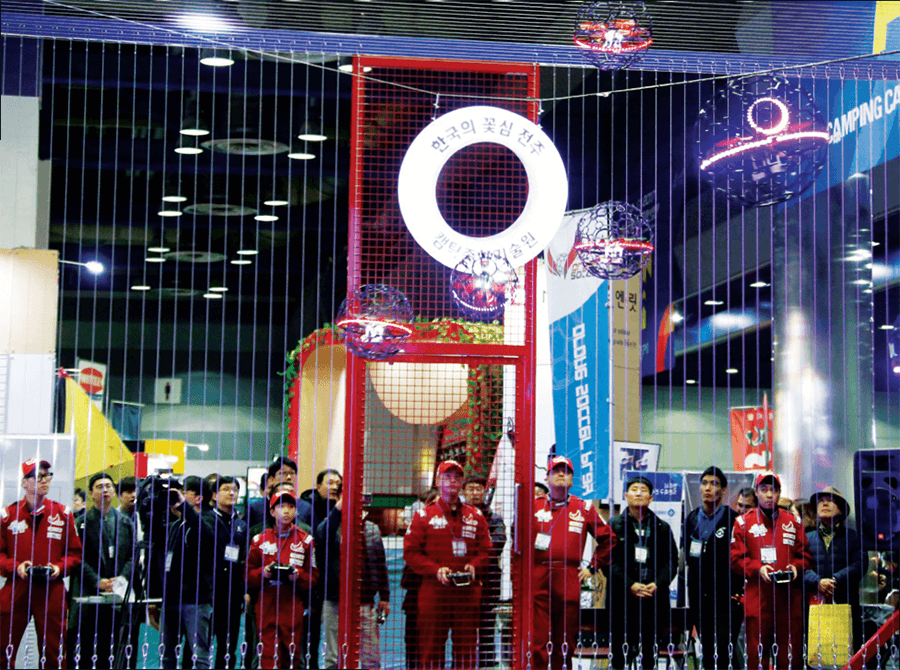
Since the city of Jeonju has developed the drone soccer in 2016, it has been drawing worldwide attention. Last year, Jeonju has invited other Korean cities to hold an exhibition game of the drone soccer. The number of people playing the drone soccer and their teams have continued to increase. As of 2017, there are about 50 drone soccer teams and over 500 registered players. Last August, the Jeonju Drone Soccer has won “the Minister of Public Administration and Security Award” as an industry of the future vitalizing local economy.
More media outlets over the world are getting interested in the drone soccer. In 2017, Canada’s Discovery Channel and Japan’s NHK have covered the Jeonju Drone Soccer team. They have recognized that the drone soccer’s potential as a leisure sports industry of the future.
Jeonju plans to continue to be the leading city of the drone soccer. The city will establish the Korea Drone Soccer Association and also will launch the drone soccer league. Last November, the drone soccer festival was held at the Jeonju University and the drone soccer forum was held at the National Assembly of Korea. I believe that the drone soccer will ‘lift up’ Jeonju as a centre of leisure sports.
World Slowness Forum and Slowness Awards in Jeonju

Jeonju was recertified as an “International Slow City” in 2016. The certification is the first in the world for a city with the population of over 600,000. Since then, Jeonju has been the world’s only urban Slow City.
Last November, Jeonju hosted the World Slowness Forum and Slowness Awards at the Jeonju Hyanggyo Confucian School. Over 200 people participated in the forum, including Carl Honoré, the godfather of UK slow movement and the author of the famous book “In Praise of Slow” and Florian Opitz from Germany, who produced a documentary on the drawbacks of the speed of human society. They made presentation on ‘slowness and quality of life’ and ‘slowness and speed,’ respectively.
Also, Miguel Anxo Fernandez Lores, mayor of Pontevedra, a Spanish ‘city without cars,’ participated in the forum. Mayor Lores made presentation on how he consulted with the locals to create the ‘city without cars.’ The Slowness Awards reflected upon different townships’ ‘slowness projects.’ Through the forum and awards in Jeonju, the city has expanded communication with the 235 ‘slowness cities’ in 30 countries around the world. By taking initiative in this movement, Jeonju plans to become a leading city in the slowness movement.
The forum also included the slow-food banquet and the ‘slowness tour’ around Jeonju. Through the forum, Jeonju aimed to change the locals’ idea that ‘slowness’ is confined to the Jeonju Hanok Village area. A major objective of the forum is to find out how and which elements of ‘slowness’ could be found in our everyday lives. Also, as a city embracing the beautiful natural environment and abundant cultural heritage, Jeonju hopes that this forum will help the city become more sustainable, especially in terms of coexistence between local communities and local industries.
How Many People Worldwide are Visiting Jeonju?
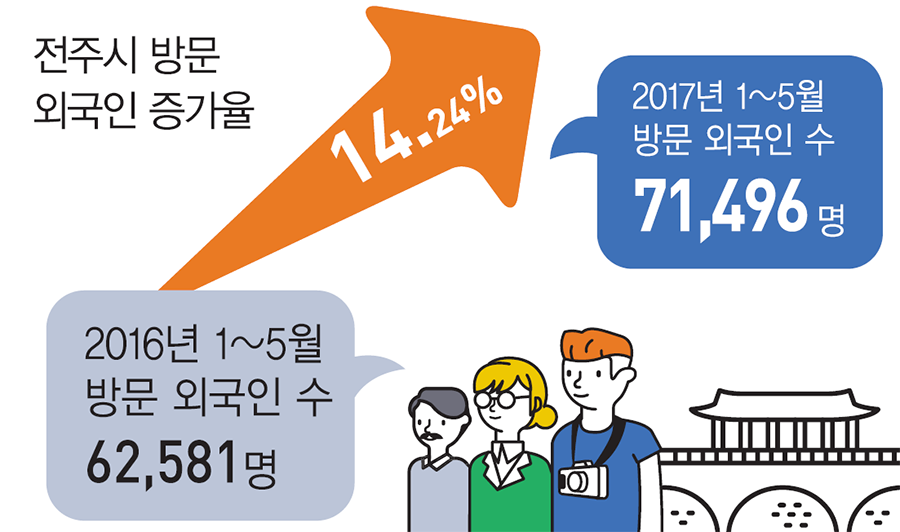
Jeonju is one of the ‘hottest’ Asian destinations not only for travelling, but also for working, living and studying. As of May last year, the number of visitors to Jeonju from overseas has increased by 14.2%, from about 62,600 to about 71,500.
In last May alone, during the FIFA U-20 World Cup period, 17,974 visitors have been to Jeonju from overseas. The U-20 World Cup surely helped increasing the visitors to the city, especially when the last year’s ‘THAAD crisis’ has reduced the number of tourists to Korea in general.
Most of the overseas visitors have come from the Southeast Asian countries, such as Taiwan, Malaysia, Vietnam, Philippines, Thailand, and Hong Kong. Also, the number of visitors from the United States, United Kingdom, France, Germany, and Netherlands has been shown to be continuously increasing.


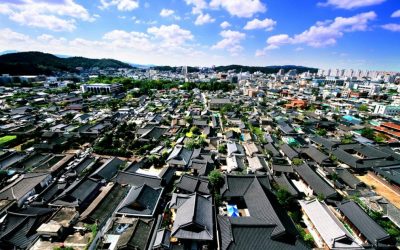

최신 댓글